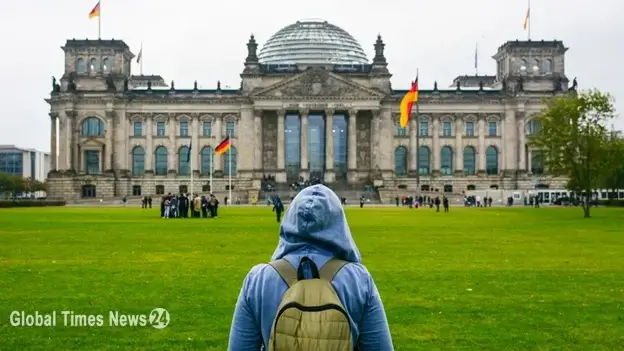The fundamental inquiries surrounding Operation Al-Aqsa Storm revolve around its necessity, motives, and ethical considerations. This article delves into the reasons behind its occurrence, evaluates the essentiality of the military operation, and scrutinizes the ethical implications, especially in light of the potential harm to Palestinians in the aftermath of the involved party's response.
Selfishness and arrogance are observable in certain individuals. Selfishness can be characterized by an excessive pursuit of personal gain, prioritizing oneself to an extreme extent. When this selfishness and egotism permeate a group or become predominant, especially in rulers who have now become powerless individuals, the term that aptly describes the phenomenon is none other than "arrogance."
Arrogance entails perceiving oneself as greater and superior to others, reflecting a form of extreme selfishness. In the arrogance of an individual or a ruler, there exists a perception of others and other powers, but the individual sees themselves as larger and superior. This arrogant perspective, whether grounded in reality or illusion, leads to the oppression and cruelty of those perceived as inferior. Consequently, the subjugated individuals are compelled to recognize the arrogant one as possessing higher authority, yielding obedience, or risking rebellion, even at the expense of their lives, against those who wield greater power.
In the contemporary world, we grapple not only with the presence of arrogance but also with the notion of exclusive power—believing "I alone possess authority; I can act without constraints; power is exclusively mine." This contrasts with arrogance, where the individual recognizes others but deems themselves superior. In this case, the focus is on preserving power where others might challenge it. However, with self-worship, the individual sees only themselves, disregarding others entirely and holding no regard for the power of anyone else. This self-centered mindset, when manifested in the realm of politics, evolves into dictatorship. Dictators not only oppress but do so to the extremes of their power, to the point where their actions warrant the label of crimes. What we observe in certain global powers is precisely this dictatorship stemming from self-worship. Israel and America, in particular, have escalated their oppression to a degree where their actions can only be characterized as criminal.
For over seven decades, their dictatorial tendencies have spawned grievous and horrific crimes in Palestine. Now, facing rockets instead of stones, they awaken to the realization that they aren't the omnipotent force they believed themselves to be, leaving them stunned and astounded.
The inclination towards self-centeredness and self-worship unfortunately transforms dictators into individuals who are oblivious to ethical distinctions and resistant to acknowledging failure. Consequently, they compound their cruelty and perpetrate more crimes. As a result, it is foreseeable that, following Operation Al-Aqsa Storm, we will witness an escalation of Israeli offenses. Nevertheless, standing against the oppression of a dictatorial power and delivering a symbolic rebuke is invigorating and exhilarating, offering a sweet respite from the formidable challenges that lie ahead for the people of the resistance front.
On the flip side, it lays bare the hypocrisy of those who purport to champion freedom and human rights. Why did they turn a blind eye to the oppression of Palestinians for over 70 years, only to now invoke human rights in response to this attack? Whose humanity are they advocating for, and which rights are they emphasizing? They assert the necessity of defending Israel but neglect the defense of the people rooted in their own land. What kind of defense is this? Has Israel not been the aggressor for decades, calling the Al-Aqsa Storm an attack? The al Aqsa storm is nor an attack but rather the Palestinians' defensive stance in their seven-decade struggle against Israel's persistent assaults?
Hence, the crucial aspect at present is the triumph of Palestinian factions against oppressive regimes. Given that the Al-Aqsa Storm marks the initiation of a remarkable shift in the landscape of this resistance, it stands as a historic and transformative event. In light of these considerations, the Al-Aqsa Storm merits commendation. However, it appears that the enduring resolution to this protracted conflict lies in a familiar avenue—conducting elections with the active participation of the Palestinian populace to self-determine their destiny; otherwise, the issue persists.
It is imperative to emphasize that if politicians and Israel's allies exercise some rationality, they would recognize that the era of unidirectional conflict with the Palestinians has concluded, and they are no longer contending against individuals merely hurling stones. Acknowledging this reality, instead of persisting in criminal actions, they should endeavor to grasp the actuality of the narrative—the termination of their dictatorial authority—and take measures to bring about a resolution in accordance with the proposed approach.
News ID : 2546


 Advantages of Living in Germany
Advantages of Living in Germany
 Kremlin: Time for celebrating Victory-Day in Mariupol will come
Kremlin: Time for celebrating Victory-Day in Mariupol will come
 The Arab League calls on Israel to suspend Jewish prayers at Al-Aqsa Mosque
The Arab League calls on Israel to suspend Jewish prayers at Al-Aqsa Mosque
 New Poll Shows Trump Leads Harris in 2024 Presidential Election
New Poll Shows Trump Leads Harris in 2024 Presidential Election
 Humanitarian aid entering Gaza decreased by 50% in Feb says UNRWA
Humanitarian aid entering Gaza decreased by 50% in Feb says UNRWA
 Nakba 75: Palestinian citizens of Israel are exiles in their own land
Nakba 75: Palestinian citizens of Israel are exiles in their own land
 10 Reasons to Start business in Dubai
10 Reasons to Start business in Dubai
 Intensifying ethnic polarity in Israel reaches deadline of election campaign
Intensifying ethnic polarity in Israel reaches deadline of election campaign
 What if we travel with the Light speed?!
What if we travel with the Light speed?!
 7 Trending AI Business Ideas for 2023
7 Trending AI Business Ideas for 2023
